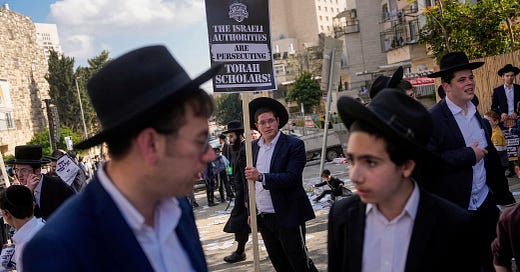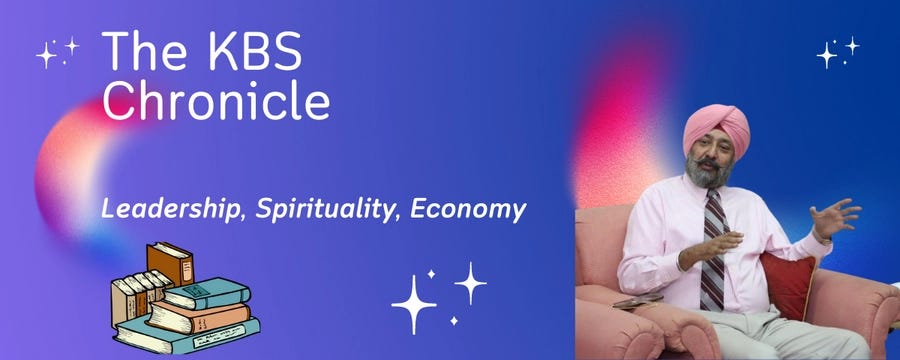Israel Supreme Court Ends Military Service Exemption for Ultra-Orthodox Jews
Israel's Supreme Court Orders Ultra-Orthodox Drafting Amid Gaza War, Rattling Region. Comparison With India.
Israeli Supreme Court on Drafting
In a landmark ruling with profound implications, Israel's Supreme Court on Tuesday, 25th June, mandated the military to begin drafting ultra-Orthodox Jewish (Haredi) men, ending a decades-long exemption. This decision arrives amidst an 8-month-long war with Hamas in Gaza, intensifying an already volatile situation. While the Court did not set specific numbers for enlistment, Israel’s Attorney General’s office suggested that at least 3,000 ultra-Orthodox soldiers enlist in the coming year, noting that some 63,000 ultra-Orthodox students are eligible for conscription. Additionally, the court ordered the government to withdraw funding from any religious schools, or yeshivas, whose students do not comply with draft notices.
This article explores the ramifications of this ruling on Israeli society, its military, and the broader geopolitical stability of the Middle East.
The Role of Israeli Citizens of Arabic and Palestinian Descent in the Military
Interestingly, Arab citizens of Israel, who constitute around 21% of the population (approximately 2,080,000 people), are largely exempt from military service based on IDF policies rather than law. This exemption applies to Arab Muslims, Arab Christians, and Bedouins, though some still volunteer to serve. This demographic also includes Druze, Circassians, Christian Arabs, and Armenians. Despite being a minority, these citizens are among the bravest and most motivated among the volunteering soldiers in the Israeli military. The majority of Arab citizens in Israel are Muslim (82%), with smaller percentages of Druze (9%) and Christians (9%). The number or percentage of such soldiers in the Israeli armed forces is not publicly available. This aspect was not addressed by the Supreme Court judgment, leaving recruitment policies to the wisdom and discretion of the IDF.
Historical Context of the Ultra-Orthodox Exemption
The exemption of ultra-Orthodox men from compulsory military service dates back to Israel's founding in 1948, initially granted to a small number of gifted scholars. Over the decades, political pressures expanded these exemptions significantly, causing resentment among secular Israelis. The ultra-Orthodox community, making up about 13% of Israel's population, has fiercely opposed enlistment, arguing that their religious studies are paramount.
The Supreme Court's Ruling
The Supreme Court invalidated the 2017 law that granted military exemptions to ultra-Orthodox seminary students. The ruling emphasizes the principle of equality in national defense obligations, particularly acute during the ongoing Gaza conflict. "At the end of a difficult war, the burden of conscription is more than acute," the Apex Court stated. This decision threatens to destabilize Prime Minister Benjamin Netanyahu's coalition, which heavily relies on ultra-Orthodox parties.
Impact on Netanyahu's Coalition
Netanyahu's governing coalition, holding a slim majority, depends on ultra-Orthodox parties that vehemently oppose the draft. The coalition's fragility means that the ruling could lead to its collapse and trigger new elections. This political instability compounds the challenges Israel faces in Gaza and along the Lebanon border, where tensions with Hezbollah are escalating.
Broader Implications for the Gaza War
The ruling arrives as Israel grapples with a protracted and deadly conflict in Gaza. With over 37,000 Palestinians killed and the humanitarian crisis worsening, the military's resources are stretched thin. The integration of ultra-Orthodox men into the military, though unlikely to have an immediate impact on the war, adds another layer of complexity to an already strained system.
Regional Geopolitical Stability
The Gaza conflict has broader implications for regional stability. UN Secretary-General Antonio Guterres has warned against turning Lebanon into "another Gaza" amidst rising tensions with Hezbollah. The potential for a wider regional war looms large, threatening to destabilize the entire Middle East. The Supreme Court's ruling, by exacerbating internal divisions within Israel, could further complicate efforts to achieve peace and stability in the region.
The Challenge of Integrating Ultra-Orthodox Soldiers
Integrating ultra-Orthodox men into the military presents significant challenges. The army has attempted to accommodate religious practices through separate units, but resistance remains strong. The ultra-Orthodox community views military service as a threat to their way of life, making their integration into the military a contentious issue.
Contrasting Military Recruitment Trends: India and Israel
In a parallel but opposite direction, the number of young men and women aspiring to serve in the Indian Armed Forces far outstrips the available vacancies, especially in a scenario where future wars might be fought with drones and cyber-attacks forming a significant part. While it is easy to attribute this to India’s burgeoning population of 1.4 billion and surging unemployment, especially in rural areas, it is also a strategic advantage, given India's belligerent neighbours to the north and the west.
Nevertheless, the contentious "Agniveer" scheme, currently under review, certainly needs modifications. Without proper adjustments, these young soldiers, when discharged after four years of service, may become cannon fodder for military recruitment in conflict zones like Russia and Israel. This would neither be fair to the youth nor beneficial for the country.
Summing Up and Looking Forward
The Israeli Supreme Court's decision to mandate the drafting of ultra-Orthodox men marks a significant shift in Israeli society. Aimed at addressing long-standing inequalities in national defense obligations, the ruling also threatens to destabilize Netanyahu's coalition and exacerbate internal tensions amidst the ongoing Gaza war and rising regional instability. The broader implications for Israel and the Middle East underscore the delicate balance required to navigate this multifaceted conflict. Moving forward, Israel must address immediate military and political challenges while seeking long-term solutions that promote unity and stability. Integrating the ultra-Orthodox community into national service, though difficult, could ultimately strengthen the nation's social fabric. Achieving this requires careful, considerate approaches that respect the diverse perspectives within Israeli society.
If you believe this article would interest someone you know, please feel free to share it anonymously (for us), using any platform that you prefer.





